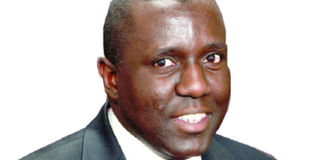Prime
EU resolution on EACOP unfurls global dimension of big oil, environment politics

What you need to know:
- While the rhetorical flourish that accompanies nationalist sentiments is pleasing to the ear, the truth of the matter is that at 10,000 meters above, African regimes have mismanaged the promise of our gifts from God.
On paper the European Parliament’s resolution swiftly comprises three moderate measures; release of persons arrested for resisting the pipeline, a one-year delay to reassess the environmental impacts on the corridor and offshore facilities proposed to be erected under the EACOP and minimising carbon emissions as most production is slated after 2030.
The EU Parliamentary Resolution does not “cancel” the pipeline but notes that recipients of EU funds namely Total Energies are already facing legal proceedings in Europe challenging their actions.
The oil industry everywhere is associated with catastrophic governance problems, corruption, political dreadlock and environmental challenges. In economic language, big oil is an instrument of instability first out of the volatility of oil as a commodity, second as an instrument of net wealth transfer from the owners to wider global interests, third is the pressure oil extraction poses on fragile ecosystems.
In the United States, presidents from the Democratic Party routinely “cancel” oil concessions and pipelines approved by Republican presidents. Recent big projects ‘cancelled’ include drilling in the Alaska Wildlife Refuge, the Keystone Pipeline canceled by Presidents Barack Obama and Joe Biden respectively. In this sharp debate between labour unions, a reliable vote getter for the Democrats finds themselves on the side of big business as big oil is a reliable and lucrative employer.
At the foot of the Tilenga Wells are a number of fragile ecosystems. The Albertine-Semliki refuge of which the 232 square km game park is part is home to over 405 bird species found only in this area, the hot springs in Sempaya, vast molten rock under the surface facing off with the Great Western Rift. At key locations, the Great Western Rift is more spectacular than the Mau Escarpment in Nakuru County. The pipeline route from Hoima travels south through the Katonga Game Reserve that touches the Kibale Refuge, the Katonga Watershed that feeds Lake Victoria whose eastern head in Kalungu District is being mined for sand, and possibly the Bukkakata Sector long deforested now is a future site for oil exploration. Uganda’s oil basin crosses the waters of Lake Victoria into Kalangala district extending to Kyamuswa County.
Ugandan Members of Parliament may pass some additional covenants to limit the excess of the pipeline by limiting compulsory land acquisition, altering the path of the pipeline from water sources and population centers. It is true big oil spills, whether on-land where the pipeline is a security installation or on-water where any catastrophe can cause big spills and costly clean-ups. The life and times of Ken Saro Wiwa and the fate of the Ijaw people in the Niger Delta, the multiple spills in the Gulf of Mexico and costly cleanups come to mind.
The politics of oil and how it is playing inside the country is a big issue. The delay in the Final Oil Decision has put strain on the economy. In the global game, it is possible one of two outcomes will prevail. Uganda’s politics could improve in response to greater external scrutiny and accountability. Or it can move in the reverse, Equatorial Guinea, our bosom friend and ally, is an illustration of a trip in the reverse direction. The fierce competition for Africa’s resources in the heart of Africa signals this outcome. At no time has the dialogue between the West and Africa become so direct.
While the rhetorical flourish that accompanies nationalist sentiments is pleasing to the ear, the truth of the matter is that at 10,000 meters above, African regimes have mismanaged the promise of our gifts from God. In the eyes of the foreigners, Africa is still very much a loose federation of warlords, tribal kings and strong men. The frequency of coups is on the rise.
A new economic compact post Covid is necessary to moderate the bad effects of big oil now closer in the driving mirror than ever before.
Mr Ssemogerere is an Attorney-At-Law and an Advocate.




